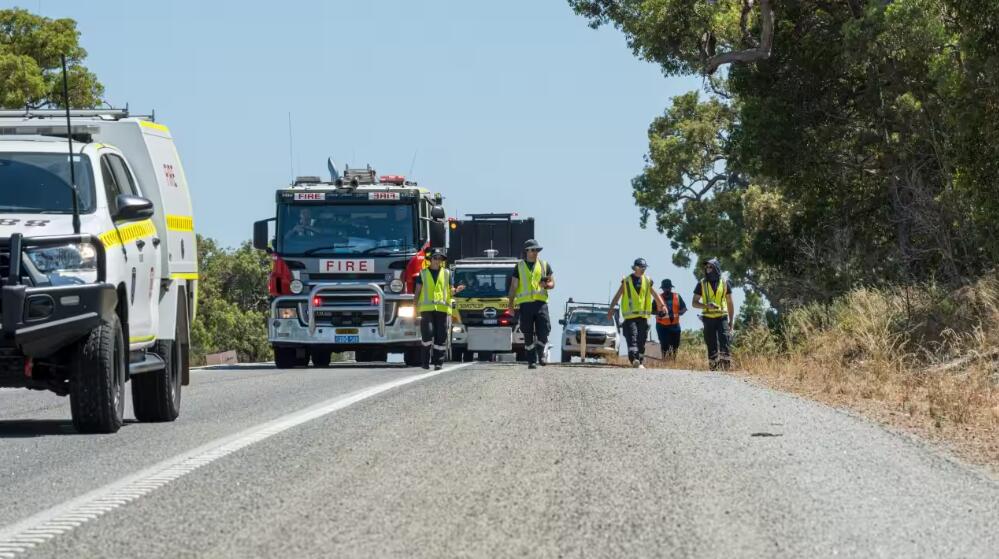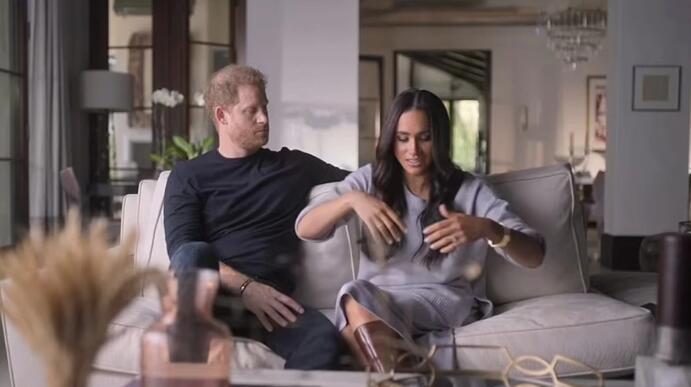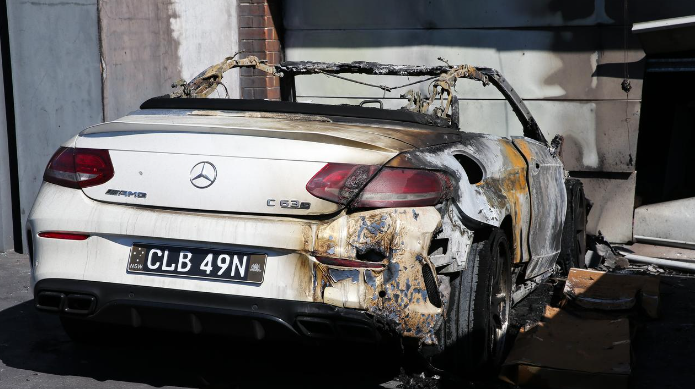Rubbish trucks, satellite images and a television news crew have been involved in some of the almost seemingly impossible searches in Australia.
While it may have appeared to be a needle-in-the-haystack kind of effort, Australia is no stranger to extraordinary examples of lost and found stories.
These are a few of the country’s successful searches.
NASA spacecraft
Reports of a loud “boom” and lights in the sky across much of the southern part of Western Australia in the early hours of 12 July 1979 set about a global treasure hunt.
The search was on for pieces of debris from Skylab, the USA’s first space station, which had fallen to Earth.
The house-sized station circled the Earth for years with space missions to it carried out in the early 1970s. NASA then worked on a space shuttle to send back up to move Skylab into a higher orbit.
Before that could happen, it was pushed out of orbit and the space agency tried to remotely direct the station in the hope that once it inevitably fell back to Earth, it would land in the least dangerous location.
Skylab’s re-entry to Earth had people across the globe talking and US newspaper the San Francisco Examiner offered a $10,000 prize to the first person to arrive at its offices with piece of it.
The Washington Post reported on 9 July 1979 that “the largest and heaviest pieces would drop short of Australia into the Indian Ocean, endangering little more than its large population of whales”.
That wasn’t the case, as we now know most of the pieces fell near the WA coastal town of Esperance, into the Goldfields region and along the Nullarbor towards South Australia.
Time Magazine reported
“souvenir hunters rushed into the outback by Jeep, Land Rover and even chartered aircraft”.
Stan Thornton, a 17-year-old from Esperance, won the $10,000 prize after he collected small pieces of Skylab off the roof of his home and jumped on a plane to San Francisco.
Parts of the first US space station, Skylab, which crashed to Earth near the town of Esperance are on display in the town’s museum. Source: AAP / JAMES SHRIMPTON
The space station’s oxygen tank was found 14 years later on a remote farm outside of Esperance.
Jewellery and a lotto ticket
In the case of a Victorian man who accidentally threw thousands of dollars worth of his wife’s gold jewellery away, taking quick action proved fruitful.
The man who the ABC named only as “Frank” had apparently thrown all the food from his freezer into the bin after returning from a holiday in January to realise the door had been left open and everything inside had spoiled.
However, a local shire councillor in the area
told ABC
, when doing so, he forgot his wife’s jewellery had also been stored in the freezer.
Somehow, the contracting company was able to identify which truck would have picked up Frank’s rubbish and the truck was yet to be emptied.
They tipped out the six to eight tonnes of rubbish in an area where Frank was able to search through it and he was able to locate the missing jewellery.
A similar but slightly more extensive search carried out in 2002 saw a man trawling the City of Kalgoorlie-Boulder tip for his missing lotto ticket.
One man had to get permission from his local council to search the tip for what he thought was a winning lottery ticket. Source: Getty / RyersonClark
The man, who was convinced he was the owner of the winning $1.5 million lotto ticket, was
given permission to search part of the waste disposal facility
after he claimed he had accidentally thrown it out.
Having spent about four days searching in the summer heat, the man eventually admitted defeat and in a twist, the lucky winners of that $1.5 million lotto draw came forward to claim their prize about five months later.
Lost in the desert
The Great Sandy Desert is Australia’s second-largest desert and its arid climate makes for harsh conditions for the toughest of travellers.
But in 1999, an American tourist decided he’d take a journey through it to “test his spirit”.
Robert Bogucki attempted to take a bicycle through the desert on a planned two-week journey to “test his spirit,” but failed to tell anyone about his exact plans.
More than two weeks after departing from a remote WA roadhouse, a group came across his abandoned bike and alerted police.
Once police were able to connect Mr Bugucki to the bike and spoke to his parents in the US who hadn’t heard from their son — other than a postcard which mentioned he was heading to a desert — a major search was launched.
Despite considerable resources, he was unable to be found and police suspended the search after more than a week.
While Mr Bugucki’s family have since said they believed they were searching for a body, they organised a private search to be carried out by a specialist response group.
Few expected American, Robert Bogucki to be able to survive 43 days alone in the Great Sandy Desert but a news crew spotted him alive, by a water hole. Credit: ROBERT DUNCAN
After 43 days in the desert, a television film crew in a helicopter were the ones to find Mr Bugucki alive. Having gone without food for weeks, water for 12 days and been exposed to the elements, he was gaunt and had lost 30 kilograms.
Health professionals were surprised he wasn’t in an even worse way after such an ordeal.
Determination and satellite images
With the help of satellite images available via Google Earth and a few precious memories, Saroo Brierley managed to locate his home village while at his new home in Australia and eventually located his birth mother.
Mr Brierley was adopted as a child by a family from Hobart. He had been living in an orphanage after finding himself lost on the streets of Kolkata, India, thousands of kilometres from his home in another part of the country.
Dev Patel in the 2016 film Lion and inset, Saroo and Sue Brierley. Source: Getty / Getty Images
He’d become lost after getting on a train that took him far from home.
By calculating how long he was on the train that he was on when he got lost and how fast that train would have been going, Mr Brierley created a search radius and searched train tracks out of the station where he’d arrived
via Google Earth.
Mr Brierley’s story about using clues from his memories along with this search method and one day coming across a place familiar to him, which turned out to be the village he was from, was told in the movie Lion.
A valuable 17th-century painting
A rare find was made in a storeroom of a heritage building in the Blue Mountains in NSW just last year.
While searchers had not actually been on the lookout for a 17th-century Dutch painting, that’s what they found during restoration of the Woodford Academy, a National Trust property that dates back to the 1830s.
Although it is not known how the 400-year-old painting — which could be worth up to $5 million — came to be in the storeroom, it was covered in layers of dirt and dust when it was found.
Experts then went through a process to validate that it had been created by Gerrit Willemz Heda and it is believed it may have been a collaboration with his famous father, Dutch master Willem Claesz Heda.








Leave a Reply